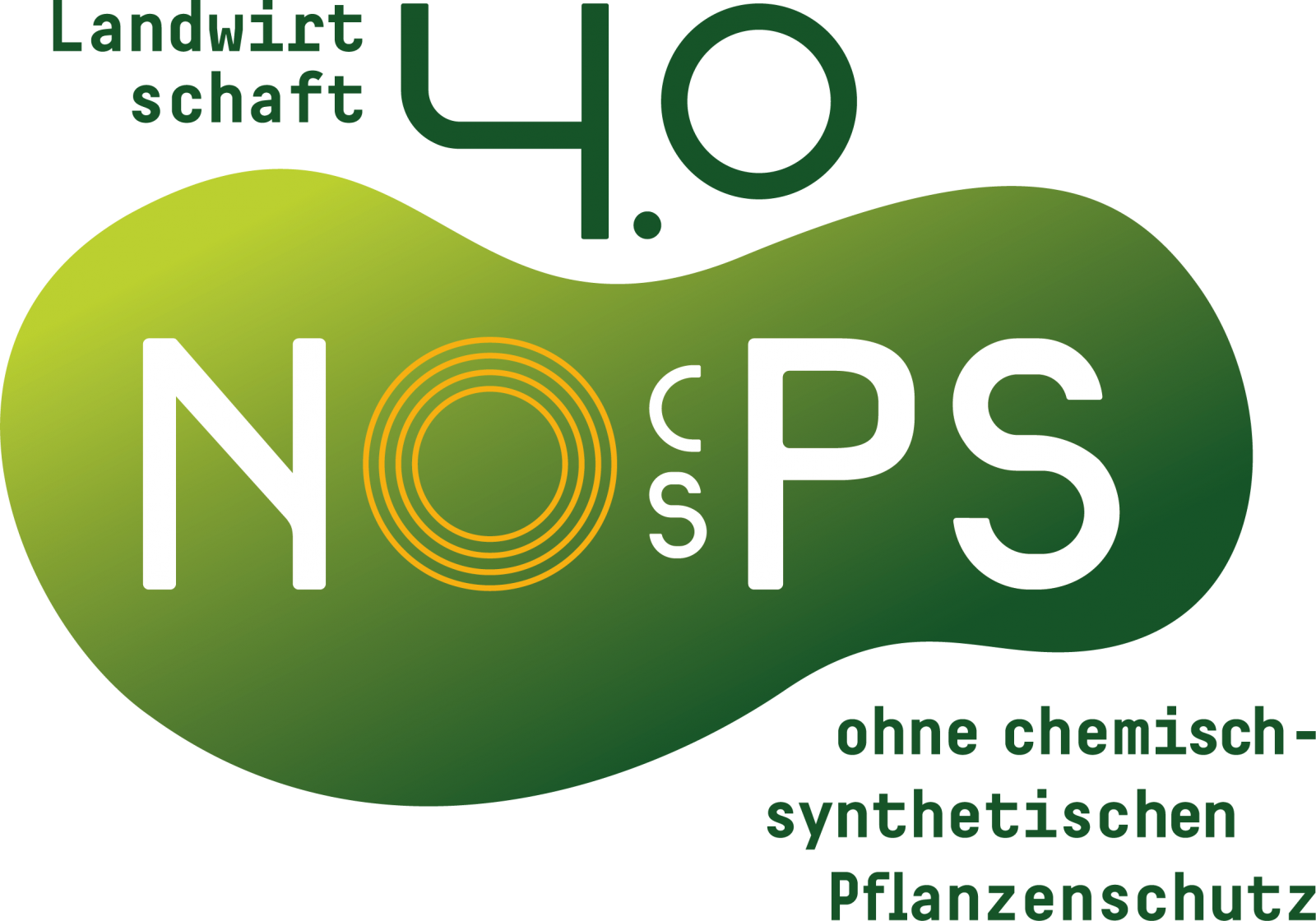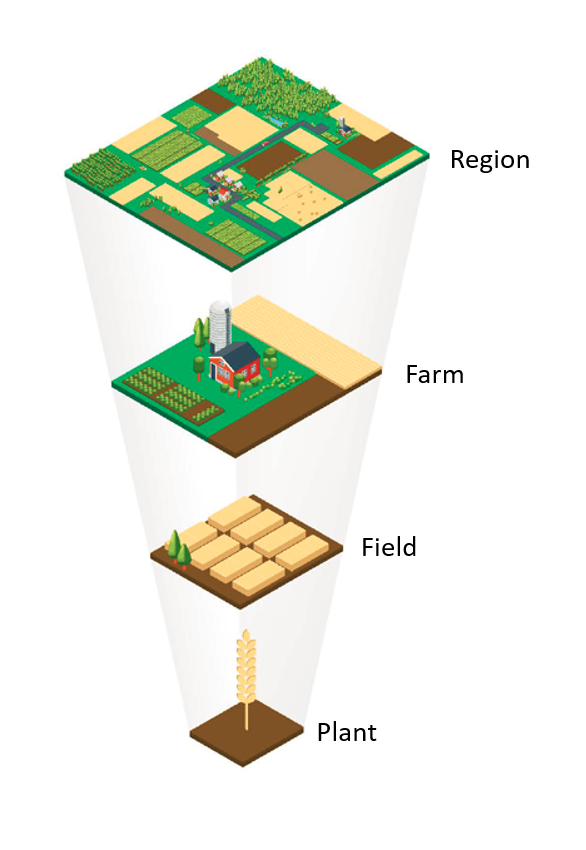Time to rethink conventional practices
The social acceptance of chemical synthetic plant protection products in conventional agriculture is declining, in part due to potential residues in food products and negative impact on biodiversity. However, meeting the future global food demand by organic agriculture only is questionable.
At the same time, increasing approval and application restrictions for active substances and increasing resistances of pests are hampering the use of chemical synthetic plant protection agents. Alternatives have to be developed in the interest of environment- and nature-friendly crop production.
Innovative cropping systems for a sustainable agricultural production
The overall objective is developing an innovative, sustainable agricultural system. The NOcsPS cropping systems may represent a future autonomous alternative but also break down the dichotomy between conventional and organic agriculture. NOcsPS can build a bridge between the established systems and offers potential to inspire organic farming with regard to alternative fertilisation strategies and cultivation methods. Conventional agriculture can thus be point in the direction of reducing chemical synthetic plant protection products with optimised fertilisation.
The selective application of chemical fertiliser while abandoning the use of chemical synthetic plant protection is intended to increase biodiversity and maintain soil fertility with (sufficient) high biomass yields. Supplying the population with affordable foodstuffs, adequate in terms of quantity and quality, is to be assured at the same time.
The opportunities and effects of this modified agricultural system are being analysed on individual plant, field, farm and regional level within the NOcsPS joint project. Whether NOcsPS cropping systems, with the use of highly modern and networked technologies as well as innovative growing and utilisation measures, can lead to comparatively high ecosystem performance with simultaneously high productivity is being examined.
Interdisciplinary and systemic approaches for Agricultural Systems of the Future
Compared to other cropping systems, the development of the NOcsPS cropping systems takes place through system, exact and on-farm trials that are studied at plot, field, farm and regional level and are evaluated from ecological, economic and social perspectives.
Scientists work interdisciplinary on the design of the NOcsPS cropping system and transfer their findings for the recording of product quality and modelling to areas such as life cycle assessment or phytosanitary and yield-oriented measures, being subsequently evaluated from economic and social perspective.
All relevant disciplines of agricultural science are represented in the joint project for this integrated evaluation: Plant cultivation, nutrition and breeding, phytomedicine, landscape ecology, agricultural engineering, product quality assessment, life cycle assessment, business administration, agricultural marketing and agricultural sociology.
The consortium is being supported by companies along the value chain since NOcsPS cropping systems are to be developed and implemented as an interplay of innovative agricultural as well as technical measures, especially in the area of smart farming.
Coordinator and deputy
Prof. Dr. Enno Bahrs
Prof. Dr. Ralf Vögele
University of Hohenheim
Coordination office NOcsPS
Dr. Ingrid Claß-Mahler (field trials)
Dr. Nicole Schönleber (administration)
Dr. Beate Zimmermann (administration)
University of Hohenheim
www.nocsps.de
Contact
University of Hohenheim
Institute of Farm Management
Schwerzstr. 44
70599 Stuttgart
Tel.: +49 (0)711 459-22934
E-Mail: nocsps@uni-hohenheim.de
Project partners
The Julius Kühn Institute (JKI)
Dr. Hella Kehlenbeck
Dr. Til Feike
Prof. Dr. Stefan Kühne
Dr. Jürgen Schwarz
University of Göttingen
Prof. Dr. Armin Spiller
University of Hohenheim
Prof. Dr. Claudia Bieling
Prof. Dr. Roland Gerhards
Prof. Dr. Simone Graeff-Hönninger
Prof. Dr. Hans W. Griepentrog
Dr. Wilfried Hermann
Prof. Dr. Ellen Kandeler
Prof. Dr. Iris Lewandowski
Prof. Dr. Christian Lippert
Prof. Dr. Uwe Ludewig
Prof. Dr. Torsten Müller
Prof. Dr. Günther Neumann
Prof. Dr. Karl Schmid
Prof. Dr. Frank Schurr
Prof. Dr. Thilo Streck
Prof. Dr. Christian Zörb
Industry partners
ABiTEP GmbH - Biotech für Landwirtschaft und Umweltschutz
BÄKO Süd-West Bäcker- und Konditorengenossenschaft eG
Bio-Protect GmbH
ETS Schuller
EuroChem Agro GmbH
HORSCH Maschinen GmbH
K.U.L.T. Kress Umweltschonende Landtechnik GmbH
KraichgauKorn - Marktgemeinschaft Kraichgau Korn w.V.
LuxFlux GmbH
RAUCH Landmaschinenfabrik GmbH
SP Sourcon Padena GmbH
Taifun-Tofu GmbH
Vereinigte Hagelversicherung VVaG

